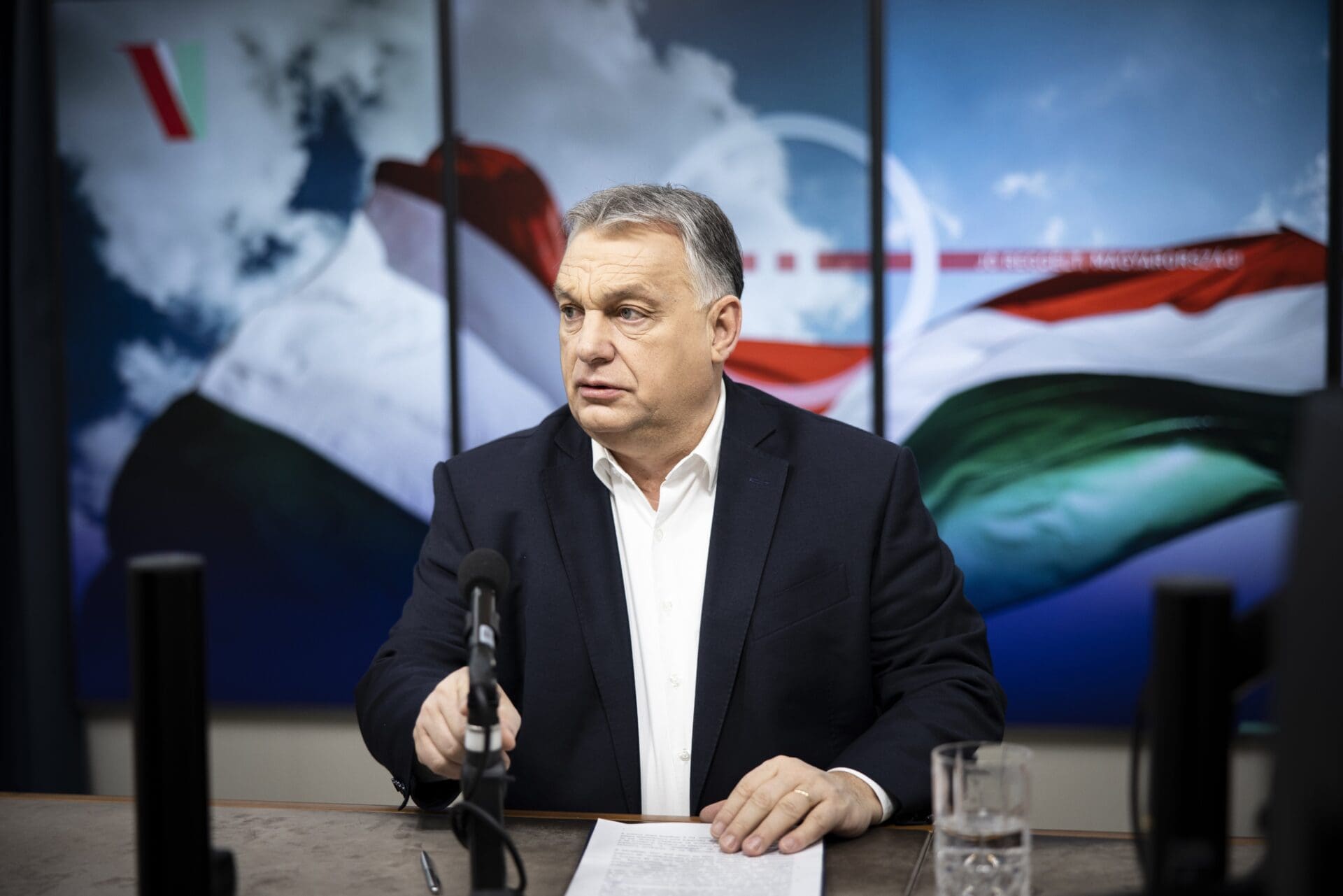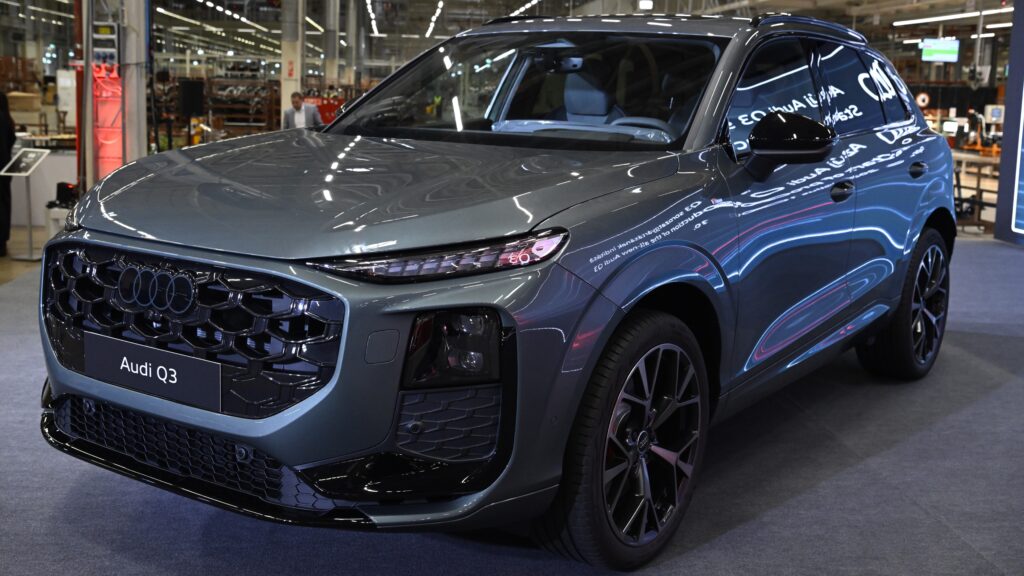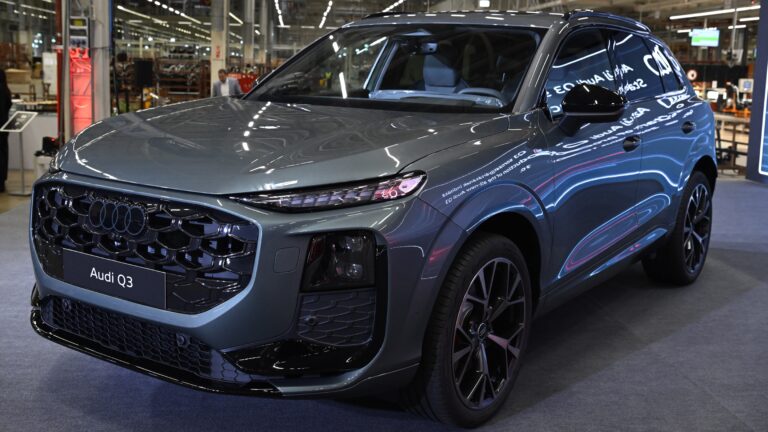In his regular Friday morning interview on public radio, Prime Minister Viktor Orbán, among other topics, spoke about US-Hungary relations and the Russo-Ukrainian war. He warned that the threat of escalation in Ukraine is real, and emphasised that if there is going to be a world war, it certainly will be nuclear.
Sanctions and the IBB
Regarding the punitive measures announced by the US Embassy, the Prime Minister underlined that they are not sanctions against Hungary. He added that the list includes 34 names, and only one of those is Hungarian. The USG action focused on finance professionals, he stressed, adding that although Hungary never agreed that sanctions are effective, it never questioned anyone’s right to introduce them either. ‘They have been acknowledged and will be respected’, the PM said. The Budapest-based International Investment Bank (IIB) could have played an important role in developing Central European economies, however, because of the war, the potential of the bank has shrunk and the recent sanctions practically ‘destroyed it’, Orbán added. He then emphasised that because of these factors, Hungarian involvement in the bank no longer made sense, so the country withdrew its delegates from the bank and quit the IIB.
Relations with the United States
The prime minister said that the US is a ‘friend and an important ally’ to Hungary, primarily regarding defence cooperation. He added that there are similarities between how the two countries think and they have ‘basically identical beliefs’, because ‘we also believe that in order for people to live in peace and prosperity, freedom and a market economy are needed’, he noted. He continued by saying that Christianity is also a strong connection point, and that the current economic relations with the US present ‘the image of a success story’. The PM added that ‘everything is given so that we can have good and friendly relations’.
At the same time, he said, he US appears to be ‘a rather divided country with large party political differences’. He added that when there is a Democratic president, relations with the country are more difficult to manage, and when there is a Republican one, they are significantly easier. He underlined that the Republican point of view is largely closer to the Hungarian government’s view on basic issues. The PM noted that the government does not wish to ‘select between the players of American political life’, it is ready to cooperate with any government America elects, as it has done in the past. Viktor Orbán also remarked that ‘US ambassadors are typically political appointees, and therefore we must accept that the current ambassador is close to the Democrats’. However, it is unusual that the US embassy uses billboards to convey their American opinion in Hungary, he noted.
Orbán also opined that the billboards with the slogan ‘Russkis Go Home’ seem to suggest that the Americans are ‘one step behind’ because ‘we have already sent them [the Russians] home once’. ‘We have already settled this issue’, and Hungarians need not be reminded of their own history, he added. He continued by saying that the US is not giving up its plan to force everyone into a war alliance, but the government will not allow Hungary to be pushed into a war. He emphasised that the US is geographically safe from the war, which one cannot say about countries in the Carpathian Basin: the risks are different. The PM added that the government expects the US to respect and consider Hungary’s unique situation regarding the war. ‘We’re on the side of peace, and that is where we want to remain,’ Viktor Orbán underlined.
The Real Threat of Another World War
The PM opined that if the escalation leads to a world war, it is definitely going to be nuclear. He said that the situation in Ukraine is getting worse by the week, and the danger of escalation keeps increasing. He added that reports suggested that Britain is sending depleted uranium to the front in Ukraine, while the Russians are deploying tactical nuclear weapons to Belarus. He added that while these weapons are not actual nuclear bombs, but are a step in that direction.
Orbán added that the pro-war Left has a fraction of the support of the national government representing peace and security. He said that he strove to find a point on which he could agree with the Left, to create unity. ‘If a country agrees on big things, we are all the stronger’, he added. The PM emphasised that he found it regrettable that the Left has not joined the Hungarian peace camp. He reminded that the government has tried to offer the left-wing opposition a ‘bridge to the pro-peace camp’, which was why a parliamentary resolution expressing Hungary’s unwillingness to take part in the war in Ukraine or supply weapons was submitted. ‘The left did not cross this bridge, but hope dies last’, he noted. Orbán added that the international community needs to focus its energy on working for negotiations that are going to lead to ceasefire and peace.
The PM said that the fact that Hungary and the EU are financing Ukraine and its war operations is ruining Europe. He added that the situation has not yet reached a point where EU leaders would realise that the sanctions and the financial support are ruining the European economy, ‘but the moment of truth will come’, he nailed down. He opined that the war would immediately end if Europe and America said no to further financial support for Ukraine. With tens of billions of euros missing from the European economy, ‘this cannot continue indefinitely,’ he added.
Macron in China
Commenting on French President Macron’s visit to China, Orbán said it was ‘very important’, because it meant that a different voice has appeared that is looking for potential partners rather than potential enemies. He likened Macron’s actions to ‘the Hungarian common sense’. The aim of Hungarian foreign policy, he underscored, is to gather friends, not enemies.
He claimed that historically, France is the only superpower in Europe capable of posing questions, and that everyone would agree with the French President if he went by the name of de Gaulle and not Macron.
Inflation Optimism
On the subject of the economy, Orbán said inflation is expected to fall noticeably in April, before a more decisive drop in May and June, adding, however, that measures to reduce inflation so far have not had a sufficient effect to warrant removing the price caps. The prices of some products, especially food, are affected by competition for customers, but so far these instances are few and far between, he added. The government, he said, was waiting for its ‘vaccine’ to work, and would continue to focus on reducing inflation.
Related articles:








